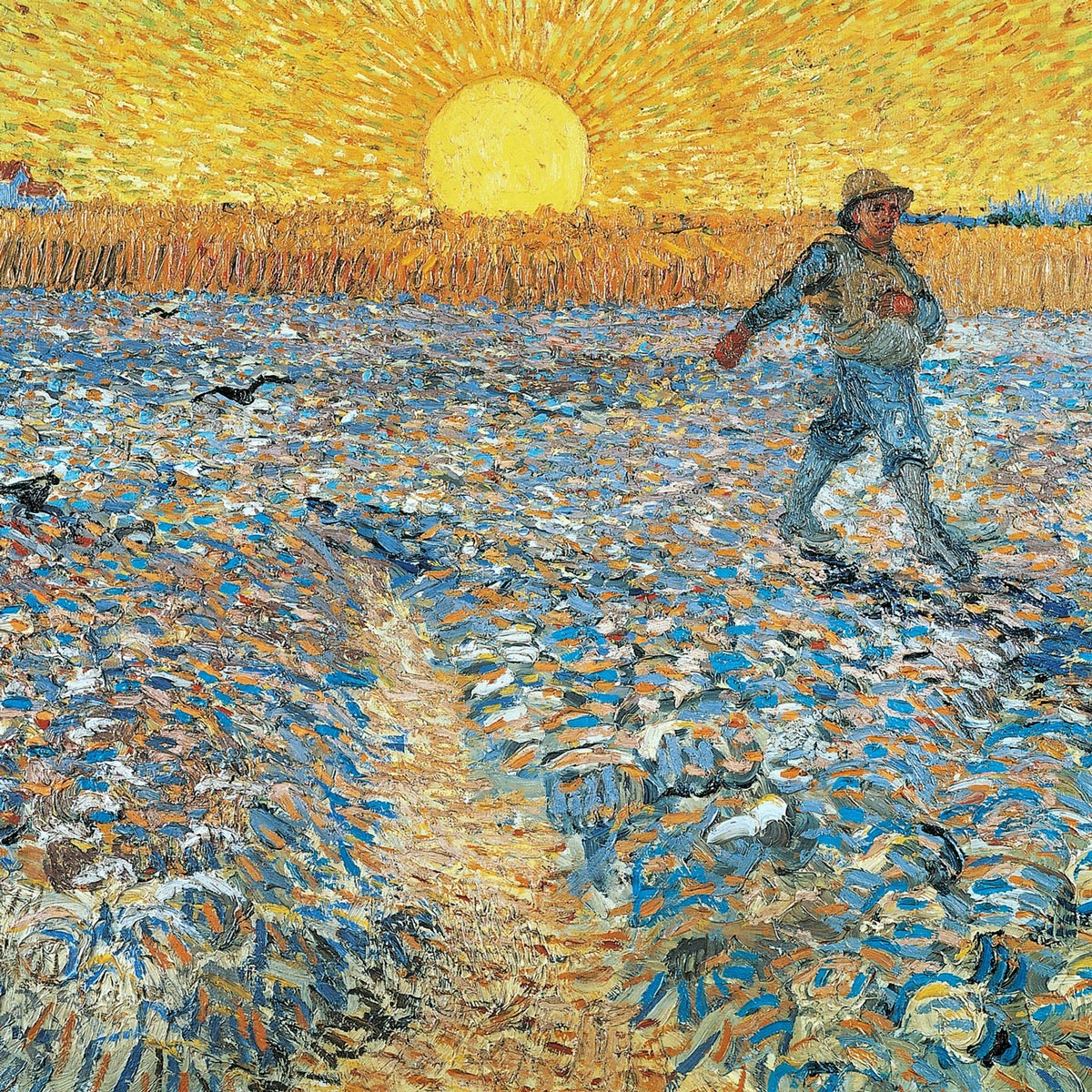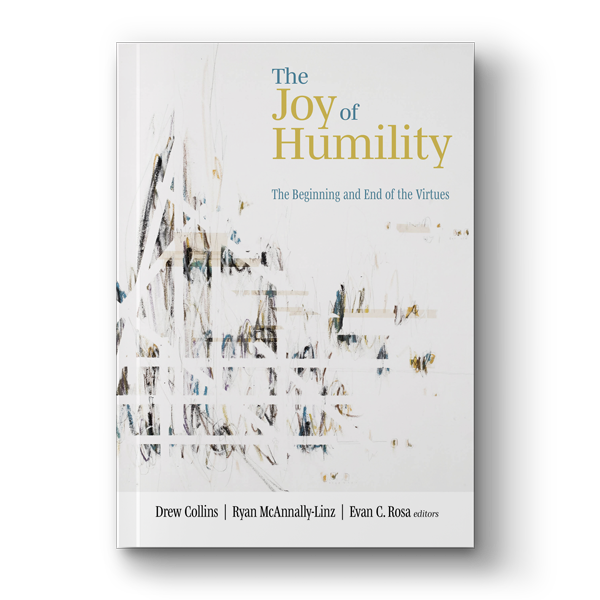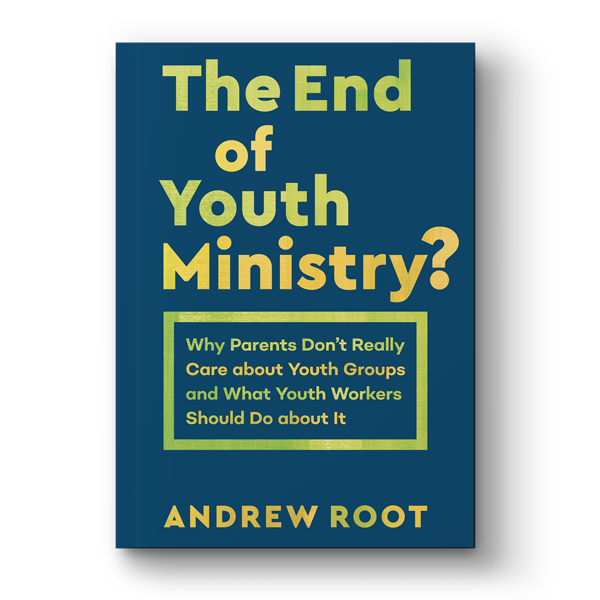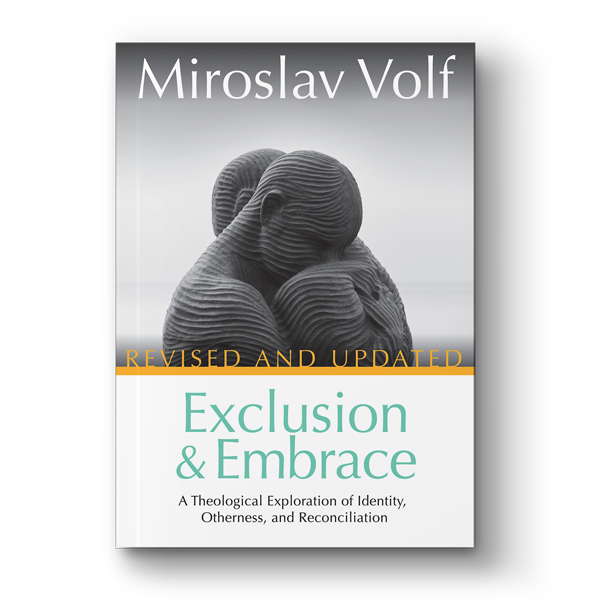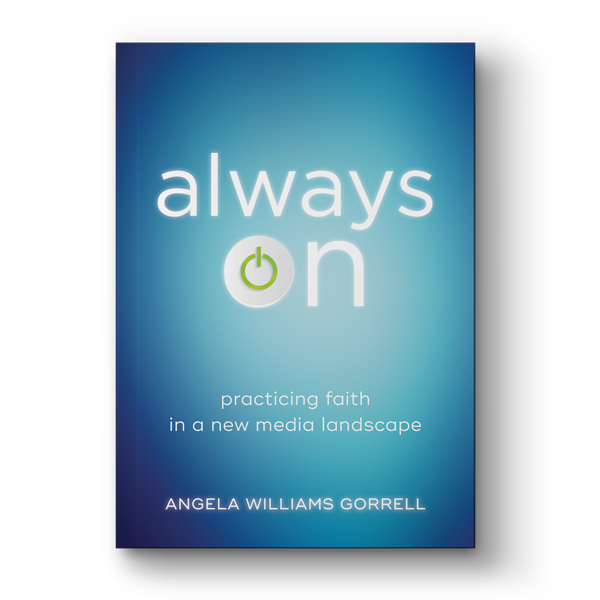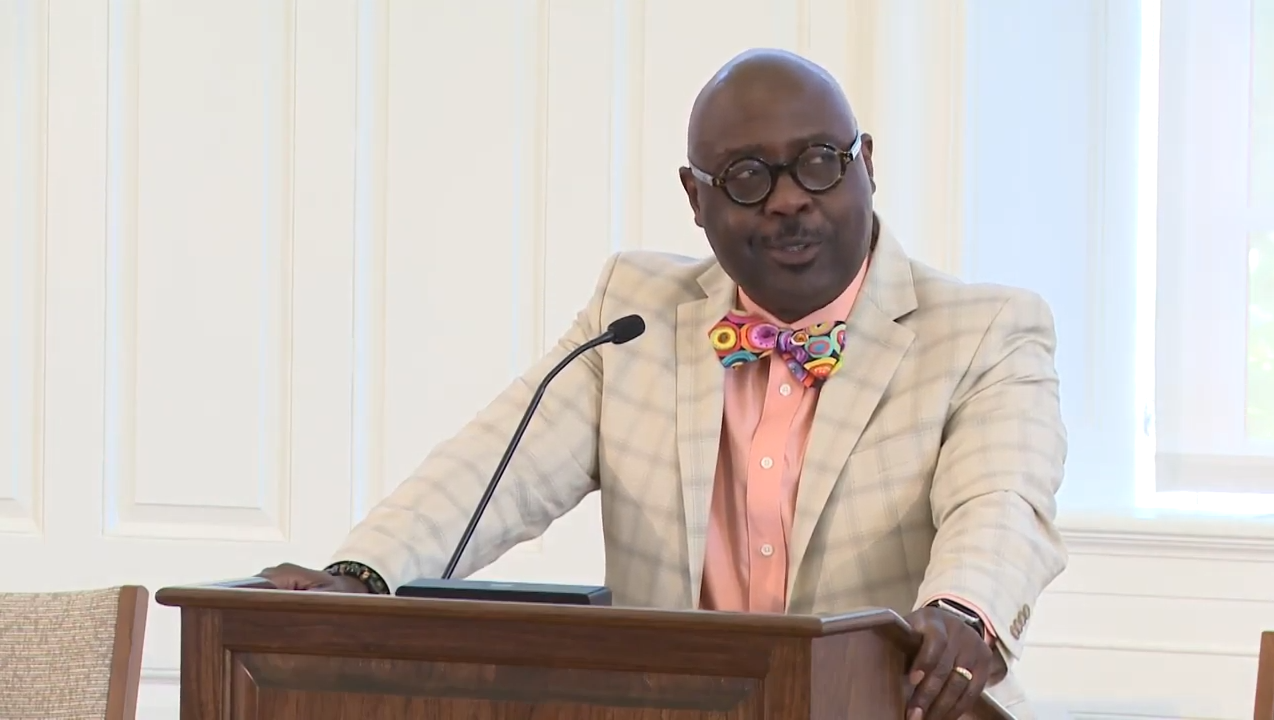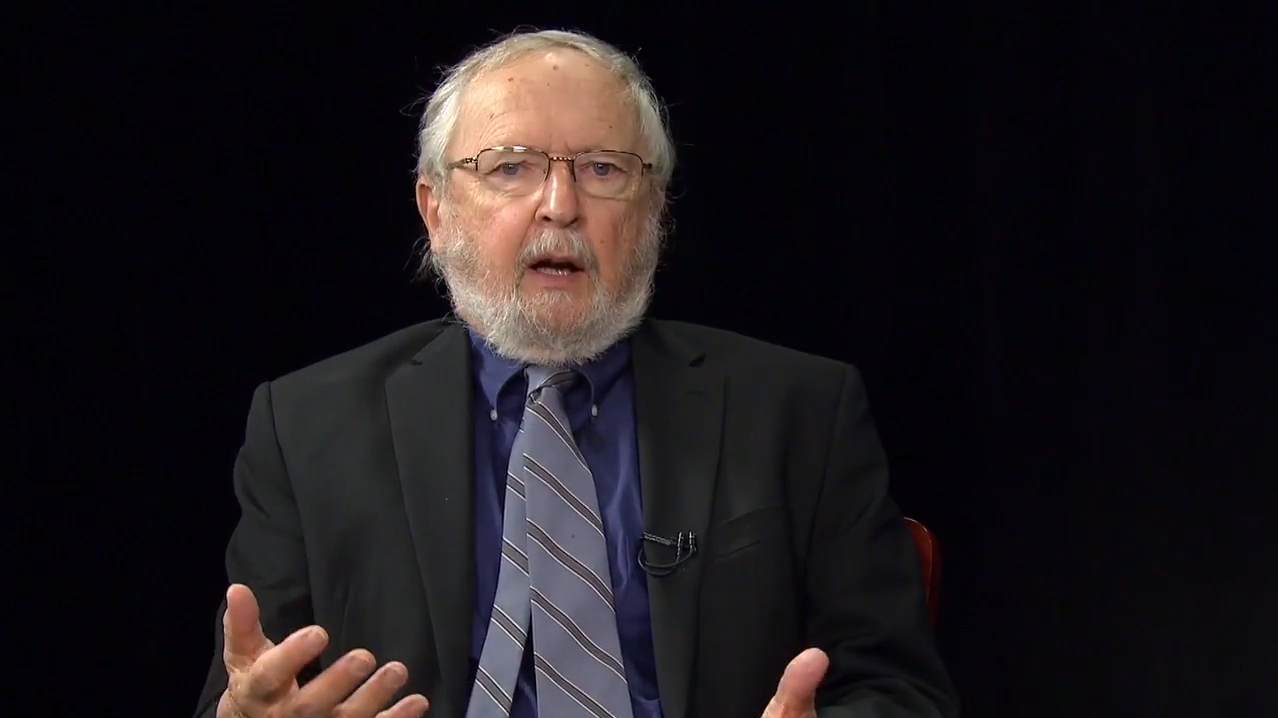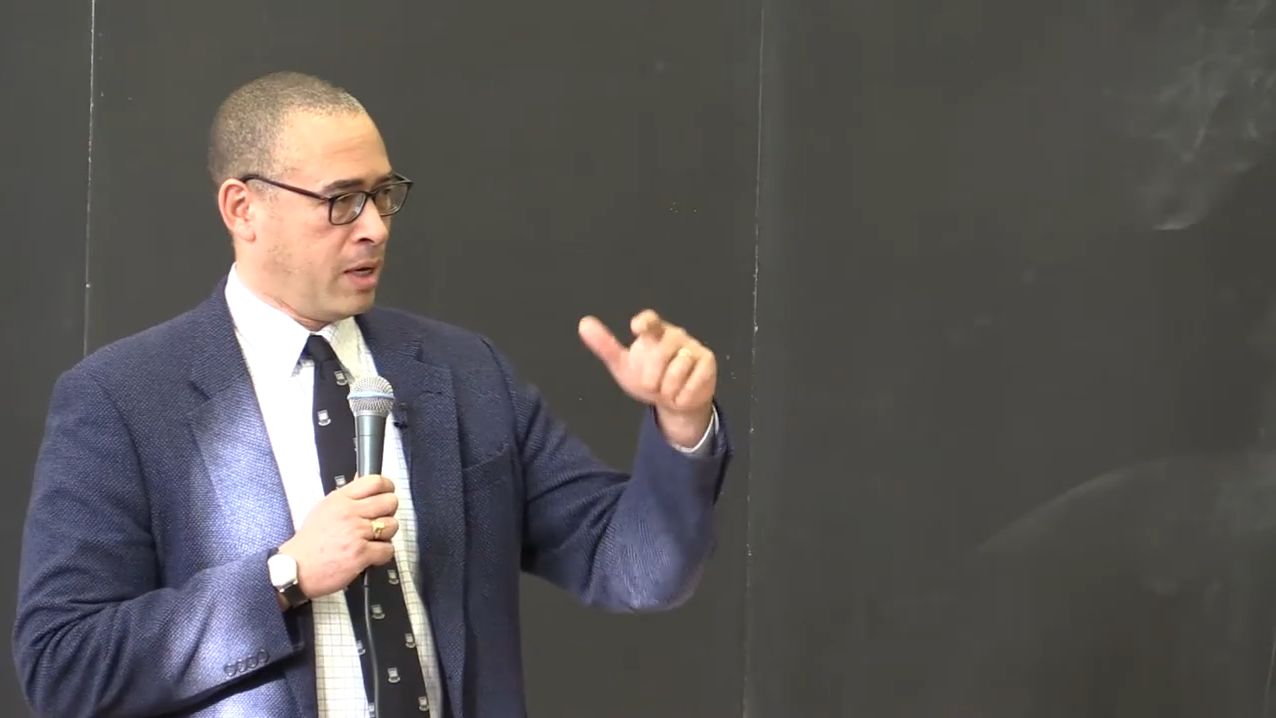Evan Rosa: For the Life of the World is a production of the Yale Center for Faith and Culture. Visit us online at faith.yale.edu.
Jo-Ann Tsang: I think as human beings, we're social creatures and we need other people. And so clearly one of the things that gratitude does is it helps us make our relationships better. I think that gratitude's role in a life worth living is helping us create, cultivate, and maintain those relationships. And those relationships can help us flourish and become better people. If someone's in a difficult circumstance, and perhaps maybe they're grieving the loss of someone, and they just need some time and some processing, then it makes sense that gratitude might be related to eventual increased well being.
But if someone's going through something where it's actually adaptive for them in the long run to experience negative affect, maybe someone's in an abusive relationship, and they need to be angry or they need to be sad or fearful, and these negative, uh, emotions will motivate them to get out of the relationship or seek help. Then in that circumstance, being grateful might actually keep them from doing something. So I don't even like the question of what's related to wellbeing and what makes us happy, because it's not always adaptive to be happy.
Evan Rosa: This is For the Life of the World, a podcast about seeking and living a life worthy of our humanity. I'm Evan Rosa with the Yale Center for Faith and Culture. It's November, and while some folks might choose to grow a mustache this month to raise awareness about prostate cancer, it's also that traditional month of gratitude and thanksgiving.
So many of us have been told, or sold, a narrative of the first Thanksgiving featuring people with funny hats, stories of indigenous embrace of colonial settlers, and it's all smothered in cranberry sauce and gravy. And then we go around the family table and we share something we're grateful for, try to keep the conversation away from religion and politics.
I mean, not anyone that works at the Yale Center for Faith and Culture. We're always game for that. And then we take a nap with a tryptophanic food coma dreams of John Madden ranting about football and turducken.
John Madden: That was looking good and smelling good and tasting good. We gotta dig in and start eating now. This is a turducken right here. You know what a turducken is? A turducken , this thing here and you get a little turkey and a little chicken and a little duck. Now that's there that, that's turducken. There's just certain things that go together, you know, the turkey, the family, the tradition, football and we have it all today.
That's turducken.
Evan Rosa: It's true. The yearly cycle of gratitude. Well, it gets tiring, but should we be so cynical about gratitude? Contemporary psychological research consistently finds that practices of gratitude correlate with improved subjective wellbeing and other pro-social benefits. It's adaptive, and it's part of a flourishing life.
So there are scientific reasons for being grateful. It's good for you. But I don't think that's what ancient religious traditions had in mind when they were practicing gratitude. There were other social, moral, and spiritual factors that pointed to the intrinsic goods of gratitude. Being grateful seems good for its own sake, quite apart from any instrumental benefits.
Now, in this episode, we're taking a second look at gratitude that is not just the rosy, make you happier side of things, but the more complicated, the darker side of gratitude. Because the sunlight does leave a shadow. Or, as another philosopher, Daniel Tiger from the Mr. Rogers spinoff says, sometimes you feel two feelings at the same time, and that's okay.
Daniel Tiger: Sometimes you feel two feelings at the same time, and that's okay.
Evan Rosa: And maybe if you had some turducken, you would feel three feelings at the same time.
John Madden: That's turducken. That's turducken. That's turducken.
Evan Rosa: We were just having so much fun. Where was I? Today. Research psychologist Jo-Ann Tsang of Baylor University joins Ryan McAnally Lenz to discuss the scientific study of gratitude, particularly the study of gratitude toward God, and how this engages with theological reflection about gratitude, the social psychology of pro sociality and adaptivity, and how it connects to our moral concepts of happiness and the meaning of the good life, the consistency of gratitude and anger, a complicated, emotional world that gratitude inhabits, its dark side, and the role it plays in a life of flourishing. Thanks for listening, friends.
Ryan McAnnally-Linz: Jo-Ann, thanks so much for coming on For the Life of the World.
Jo-Ann Tsang: Thanks for having me.
Ryan McAnnally-Linz: Could you give us a little bit of like the, the quick history of study of gratitude in contemporary psychology, where it started, where it came from, and where, where you think it is now?
Jo-Ann Tsang: I think a lot of the research has been done on how gratitude is related to well being. So does it decrease depression? Does it increase happiness? But there's also been some social psychological research looking at what are some of the contributing factors to gratitude. So does it matter if, if the person who helped you was intentional in their help? Does it matter if the help was big or if it was just something small?
Ryan McAnnally-Linz: And for you, which, which of these questions about gratitude is really the most gripping? Which ones motivate you and say, I really, I need to know that.
Jo-Ann Tsang: Well-being is always interesting, but since I'm a social psychologist, I'm more interested in what are some of the situations that determine gratitude. So one of the studies that I'm still collecting data on is, is it even possible to feel grateful towards someone that you don't like?
Not necessarily someone who's your enemy, but someone that you actively dislike, when that person does you a favor intentionally, maybe even out of good intentions, is it possible for us to experience gratitude? So some of the situational determinants, if the person intended to help you or not, or can you still feel grateful for something that was unintentional?
And then recently I've been working with Dr. Sarah Schnitker on does gratitude towards God feel the same as gratitude towards other humans, or is there something different about God since for a lot of people God has different characteristics than people? So does it maybe make more of a difference when you attribute
a benefit to God because it's more sacred? Or maybe it doesn't make less of a difference because God can do anything. So if God, if I attribute receiving 100 dollars to God, I might think to myself, why didn't I get a million dollars? So interesting to think of those questions.
Ryan McAnnally-Linz: For the average person who's having some of this research just bounce across their screen or something, what do you think is the value of learning more about how gratitude works for you?
Jo-Ann Tsang: Since gratitude has some possibly good outcomes like increasing our individual well-being or increasing relationship satisfaction, then it's helpful to know what are some of the things that increase gratitude. Because if, if you want to chase after some of those outcomes, or if you want to just increase gratitude in your life, because you find it pleasant, then it helps to know, maybe there are different ways I should frame things or I should focus more on intention or value or something.
But I, I just also, I really love just chasing knowledge. I, I think it's interesting to figure out how things work, whether it's gratitude or religion or forgiveness or prejudice.
Ryan McAnnally-Linz: I don't know if this question will land, but I'm gonna try it anyway. It strikes me that it could be different going after gratitude because of outcomes that you've learned are associated with gratitude and going after being a grateful person, because you have a sense that somehow this is an intrinsic virtue or something that is good. And this is the appropriate attitude to develop. Is there any evidence that it is experientially or psychologically different to be taking those two routes towards gratitude?
One more instrumental and one more, this is a kind of good in itself?
Jo-Ann Tsang: I'm not aware of research directly on that related to gratitude, although that doesn't mean that it doesn't exist, but there are some theories like self determination theory that say exactly what you say, that if we're doing something for intrinsic reasons because we think that it's good, um, that will feel different and our motivations will be different and our behaviors maybe will be more consistent compared to if we're doing something because something in the environment is controlling us or where it's a means to another end.
That being said though, a lot of times in psychology, especially social psychology, we might look at people at one point in time, but in our existence, we exist over a long period of time. So even if you start out saying, I'm going to be grateful because this is going to be good for me, the benefits might not be so good right then.
But if you keep practicing gratitude, pretty soon it becomes a habit, you start learning about the intrinsic worth of it, it starts maybe becoming a part of your worldview. And so now you're no longer just doing it because, oh, I need to feel good today, so I'm going to write a gratitude list, but you're just used to walking around and looking and saying, Oh yeah, I noticed the sky, I'm really grateful for the clouds today, rather than thinking I'm going to notice the sky in order to feel better. So yes, technically, but experientially, I think that if gratitude is something that you want to cultivate, you don't have to worry so much about your motivations because motivations change over time.
Ryan McAnnally-Linz: That's a really interesting thought, that there's a kind of fluidity between all of the relation of our actions to the ends that we maybe had in mind, currently have in mind, or maybe we don't even have any particular ends in mind at all, because something is just ingrained as a kind of habitual way of being in the world.
And, and gratitude may eventually be that sort of thing or trait gratitude, right? I have gathered that you've done some interesting research on when gratitude might not be associated with some of those generally recognized as positive outcomes. Could you tell me a little bit about some of the potential downsides of a, of an uncritical emphasis on cultivating gratitude?
Jo-Ann Tsang: Of course I haven't, I'm not the only one that's done research on this, but I did do a research with Dr. Kazel and others here at Baylor looking at the match between the gratitude that married partners felt towards their spouses and how supported they felt by their spouses. And we found that on many different measures of well being, individual psychological well being, relationship satisfaction, even reported aggression between partners, that things turned out better when your gratitude matched your feelings of support from your partner.
So in that case, gratitude was good. But if you felt less supported by your partner, but still a high level of gratitude, that was not related to well being in these different contexts. And neither was it the case that feeling very supportive and they're not very grateful, that also wasn't good for individuals and relationships.
And so, if you just take a unidimensional approach and say, let's just increase gratitude, that's not necessarily going to make people happier in their relationships or individually, that the gratitude has to be appropriate. It needs to match the actual benefits that you're getting. If you're grateful for benefits that are too small, or if you're not grateful enough for really good relationship. Um, neither of those things are going to be good for you. And I think that even though social psychologists like to pay attention to context, we haven't been doing a good job of testing that in the, in the area of gratitude.
Ryan McAnnally-Linz: That's, that's really interesting. There's a, there needs to be a kind of match between one form of affective response to your relationship and the broader assessment of the relationship and the broader circumstances of the relationship.
What do you think is going on? It seems, it seems to me strange to, to have a gap there. I would just, at an intuitive level, assume that I would generally line up my ranking of a question about how supported I feel and my gratitude ranking. Like they would just naturally go in step. Do you have any thoughts or hypotheses about how it is that those decouple, how somebody winds up, uh, saying they feel a lot of gratitude while also saying they don't feel supported or vice versa.
Jo-Ann Tsang: There could be a lot of possibilities and we didn't really look at the reasons. One of them might be if you are in a relationship that's having trouble, there might be some sort of wishful thinking.
Maybe you, you make yourself feel grateful because you're trying to improve your view of the relationship, even though objectively you don't feel like you're getting a lot of support. And then some people might feel on the other end, if they're not showing enough gratitude, but they see a lot of support, they might feel entitled to that support, they might say, yeah, my partner is great and I deserve someone who's great. And entitlement tends to be related to less gratitude.
Ryan McAnnally-Linz: How, if at all, do you think that would flip over into the sphere of gratitude toward God? Does that seem to you to be a loosely or more tightly analogous sort of situation, such that we'd expect the same sort of dynamics to be at play?
Jo-Ann Tsang: I can think of how it could be analogous in that if you're walking around acknowledging that God has been really good to you, and that you've been very blessed, yet you're reporting very little gratitude that that might say something about the psychological relationship, the relational model you have in your head about God.
I don't know if it would play out the same way if you're feeling not so supportive but very grateful. On one hand, um, Dr. Julie Eckstein has done work on spiritual struggle and so I can see that maybe if you're feeling extremely grateful but you think that things are going very poorly, that might be indicative of there's some struggle going on and you're trying to find equilibrium again, but it might also be- so that might be related to poor outcomes, maybe, because spiritual struggle, at least cross sectionally, tends to be related to less well being. But on the other hand, it could also be that someone is maybe engaging in some perhaps really good coping mechanisms for maybe their life is really hard and they don't feel very supportive, but they're finding some meaning in their harsh life circumstances. So they might be saying, I feel like God is absent here, but I have maybe this cognitive faith that's separate from my emotions, that God is there and so I feel grateful and this will bring me through.
Ryan McAnnally-Linz: That's a really interesting thought. I would love to see if that, if that were borne out in some research, there could be a kind of gratitude even for the periods of spiritual dryness or desolation or something like that. And, but you would wonder then if you'd have the same sort of knock on effects for well being, et cetera, in the, in that theological context or whether the gap might be somehow less detrimental.
Jo-Ann Tsang: I think it depends too on whether the, the harsh life circumstances that you're experiencing and the lack of support you're experiencing, whether there's something that you can do about it or not. Uh, I've been thinking about just even the premise of gratitude being related to well being and happiness.
It's not even always appropriate to be happy. There are certain circumstances where you actually want to be angry or sad. In the face of injustice, you don't want to experience happiness. You want to experience anger. Um, and so it just seems weird to me that people are saying, let's all experience more gratitude so we can be more happy, but it's not always appropriate to be happy.
And so if, if someone's in a a difficult circumstance and there's really nothing that they can do and they really just need to wait and let the difficult circumstance pass. Perhaps maybe they're grieving the loss of someone and they just need some time and some processing. Then it makes sense that gratitude might be related to eventual increased well being, but if someone's going through something where it's actually adaptive for them in the long run to experience negative affect, maybe someone's in an abusive relationship and they need to be angry or they need to be sad or fearful, and these negative emotions will motivate them to get out of the relationship or seek help, then in that circumstance, being grateful might actually keep them from doing something because maybe the gratitude, I don't even like the question of what's related to being and what makes us happy because it's not always adaptive to be happy.
Ryan McAnnally-Linz: That raises for me interesting questions about what, what's the motivational status of gratitude. Do we know what sort of things feeling grateful tends to motivate us to do? What sort of other feelings it tends to lead us to have? What kind of decisions it might influence us in making?
Jo-Ann Tsang: Yes. One of the things that gratitude is related to is increased pro social behavior. So especially helping back towards the person who originally helped you, the person that you, to whom you feel grateful. But it's even related to helping people who aren't related to the, the sort of transaction that happens that elicited the gratitude.
For example, if, if you're in line at Starbucks and the person ahead of you brought your, bought your drink, then you're more likely to buy the drink of the person behind you. And they really didn't have anything to do with your gratitude. But it makes us want to be more pro social. And then in support of Algoe's find, remind, bind theory that says that gratitude is related to helping us find good relationship partners and maintaining our relationships, a lot of studies have shown that when you feel grateful towards your relationship partner that this has good relationship satisfaction and commitment benefits.
Ryan McAnnally-Linz: You've used a couple of terms that, that I'm curious about, and I think maybe it'd be helpful to, to hear a little definition for those of us who aren't working in psychology on a regular basis. Adaptiveness and pro sociality. These, they sound like things that are supposed to be good things, but I, but I'm curious kind of what, what, how would you define them?
What does that mean when, when, when you say that sometimes it's adaptive to be unhappy or angry, et cetera.
Jo-Ann Tsang: Sure, sure. Thank you for urging me to speak like a regular human being. Pro sociality is easier to define for me. It's basically helping someone intentionally. So when someone's behaving pro socially, it's they're, they're behaving in a kind way on, on purpose, whether it's helping someone take notes or helping someone learn a task at work or, um, calling your mom because you know that she'd enjoy a phone call or something.
Um, so those are examples of pro social. You can use the synonym of helping or helpful. Adaptiveness is, I guess you could define it as something that's good for you. So, um, it often is adaptive for us in many circumstances to be happy. We want to be happy and being happy leads to all sorts of positive effects.
But there could be circumstances where it's better for you, it's more adaptive for you to not be happy. If someone didn't pay you what you're worth for a job, it might be more adaptive for you to be angry. And then if your anger causes you to stand up for yourself and say, no, you know what? I deserve more for this.
Then in the long run, it can be adaptive for you if your goal is to get paid more, so then the person might reconsider after you've talked with them and then give you more for your work. But again, what's adaptive or what's good in a situation depends on your goals. So if your goal is to get paid what you're worth then being angry and saying something is adaptive. But if your goal is to have a harmonious relationship with the person, then you better be careful about how you demand your payment and how you express your anger, because even if you get what you're worth, if, if you are angry and you make the other person angry, then this might strain your relationship with the person.
So really what's adaptive might depend on your goals.
Ryan McAnnally-Linz: Right, right, right. I mean, I, from like a, one of the most influential philosophical strands in, in modern life is utilitarianism. And for lots of utilitarians, the idea that you would treat happiness and unhappiness as adaptive to ends of another sort seems silly, wouldn't, isn't the goal simply to be happy, such that you might ask whether being happy now yields you the most happiness in the long term, but in the end, happiness is, is what you're after, not some sort of means to another end, right?
So I take it that that's just to say, adaptiveness is a very malleable sort of concept. It does depend on being given some sort of filled out account of the good that you are seeking or what it is that in which your good, uh, consists.
Jo-Ann Tsang: Yeah, it really depends on what your goals are and from a psychological point of view, at least from some theories of emotion, like Schwartz's feeling is information theory of emotion says that feelings are information.
And so from that standpoint, when you're happy, happiness, isn't, isn't an end goal, happiness. is a piece of information that lets you know where you are towards your goal. So if I am, if my goal is to be a doctor and I get an A in my chemistry class, I will feel happy because that A is helping move me towards my goal of getting good grades, getting into medical school and all that, and eventually to be a medical doctor.
But it just doesn't make sense when you think about the informational function of emotions to just chase the happiness, because the happiness is just, it's a message. What you're really chasing after is the goal to be a doctor and, and maybe your goal is informed by certain values. I want to help people or I want a steady job, or I want my parents to be proud of me, whatever your, your goal is, but the happiness is, is just a message. It's not something to idolize or covet.
Ryan McAnnally-Linz: So, coming back around a little bit to gratitude specifically. We've talked a bit about gratitude in inter human relational contexts and gratitude to God, and you've done some research looking at gratitude to God as a specific form of gratitude to what you call an intangible benefactor.
What's the, what's the difference between being grateful to a more concrete kind of right in front of you benefactor and one that is a little maybe little amorphous, harder to pin down and point to?
Jo-Ann Tsang: I don't have good data on that yet. We were trying to theorize what would make gratitude towards God different from being grateful to other human beings. And one of the things that Dr. Schnitker and I thought about was maybe it is that God is abstract, that most of us don't have concrete interactions with God.
And so maybe that will make gratitude towards God different in the same way that maybe gratitude towards nature or gratitude towards your country might be different than experiencing gratitude towards other people. But we're still working on collecting data on that. I, we've seen that the content of people's gratitude lists towards God is different in, in kind of predictable ways.
So people are more grateful for more spiritual things when they think about being grateful to God. But that's, less related to the intangibility of God and more, I think, just the context. So we're still trying to look into that and, and it's, it's back, it points back to a more basic question that I had when I started seeing that people were studying gratitude towards God.
Why are we studying gratitude towards God? There must be something special that we think is going on with gratitude towards God. Otherwise, there, there are so many other benefactors we could study as well, but maybe there's something about the religious context or the, the sacred nature of, of God and the supernatural or the types of benefits that God might provide us that would be different from the types of benefits that other humans can provide us. So still trying to figure that out.
Ryan McAnnally-Linz: So one possibility that comes up from, from a trained theologian's perspective, which I will admit might vary rather distinctly from, I think you said normal people earlier, is that, so if, if you're working within a tradition of thinking of God as creator, in creator ex nihilo, creator of everything that is, then God's activity is, is primarily in this tradition with respect to the whole.
And this is, you'll find this in, in a kind of a lot of the great theological thinkers have a version of this from St. Augustine to Thomas Aquinas to Friedrich Schleiermacher in the 19th century, up to contemporaries and if that's the case, you would expect perhaps that one difference in the content of those gratitude lists is a sort of more holistic objects of gratitude that you tend to be grateful to God for the whole of your life, for the whole of the world, the goodness of everything, things of that sort.
I'm curious if you find any of that, or if this is just a weird, wonky theologian thing. And it doesn't actually play into kind of everyday attitudes towards God.
Jo-Ann Tsang: We haven't looked for that yet. But we could. The closest that we got is we categorized people's gratitude lists in terms of concrete objects versus abstract because we thought that would match the possibility of intangible benefactors versus more tangible humans.
But we didn't make a category for wholeness. I'm trying to think of another word for that.
Ryan McAnnally-Linz: This is a question to take down for the future maybe because it, it strikes me as a, as a potentially really interesting way of thinking and actually potentially a very interesting way of distinguishing between different people's different types of gratitude towards God.
The exigencies of psychological research tends to push towards having relatively broad assumptions that kind of when people are talking about God, they're talking, but, but one thing studying a lot of theology will do is help you realize, wow, there are a lot of different ways of, of doing this, this understanding, and those might then be correlated with different, different articulations of gratitude, right? Different ways that it tends to show up in, in a spiritual life, in one's speech, in one's habits and things like that. Would you suspect there to be any downsides of gratitude to God?
Jo-Ann Tsang: Downsides to gratitude to God. It wouldn't necessarily be specific to gratitude towards God, but just, um, related to some downsides of gratitude specifically. So some research has suggested that when you are grateful, then you're less likely to protest, um, improper behavior by the person who you're grateful toward. And so it leads to kind of, it leads to increased forgiveness, which I guess in a theological, from a theological perspective for certain religions, that's good, but that increased forgiveness can lead you then to forgive members of oppressed groups and make you less likely to protest that oppression.
And then I would, I would imagine in the context of gratitude towards God, it's already socially undesirable to protest against what God is doing. Although there's, there's some examples like Moses would argue with God, but most of us feel like, oh, that's not my place. So if we're already in a position where we feel like we just need to accept things and not argue with God, and then if we feel grateful to God and that keeps us from, I don't know, looking for change in our environment or asking a big ask or something, if, if that would be good for you, then that might be maladaptive if gratitude's preventing that.
I also wonder if there's been some theory suggesting that if we are grateful towards systems, so God isn't necessarily a system, but if we're grateful towards our country, for example, this will keep us from similarly from protesting any injustices in the country. So if, if there are structural inequalities,
um, a lot of times people will tell members of oppressed groups, oh, you just need to be grateful for what you have. And this keeps people from changing the structures and it perpetuates unjust structures. And so I don't know if similarly, if gratitude towards God might lead people to maybe take less action against unjust structures, which according to some religious doctrine would be the wrong reaction, because maybe religion is related to standing up for the oppressed and taking down the unjust structures.
Ryan McAnnally-Linz: So yeah, that's a case where we might have reason to suspect that that a spirituality that emphasizes gratitude towards God could be working at cross grain with maybe a religious commitment from within the same religious tradition towards a non quietistic stance towards injustice in the world. Those two, those two convictions could wind up butting heads a little bit psychologically, and we might want to be on the lookout for that.
Jo-Ann Tsang: And that's not to say that they can't coexist, but I can see someone using one as an argument against the other.
Ryan McAnnally-Linz: So that's, that's an interesting question. Is, is the right, is the level of analysis argument or is it, uh, organized affective kind of motivational structures such that at the level of argument, you might be entirely on board with the fight injustice, and, and, and being grateful to God doesn't have anything to do with, with that. There's good reason to think that you can be grateful to God and fight injustice, but, but is it possible that it kind of on a motivational level there, the gratitude might still be putting the brakes on your, your actual actions in the world?
Jo-Ann Tsang: True, because if you're, if you're feeling positive, which gratitude feels positive, then that's your mind telling yourself that everything's okay and I don't need to change things. And it's, it's when we feel the negative affect, the fear and the anger that we're motivated because we're motivated to get rid of those.
We look around and we say, what am I angry about? What do I need to fix? But when we're grateful, we might not do that.
Ryan McAnnally-Linz: This raises all sorts of interesting theological questions in verses where like the apostle Paul writes, give, give thanks in all things. If, if indeed giving thanks is the sort of thing that involves a feeling good, and, and so is then cutting against a sort of, any sort of sense that, that things might need to change. That maybe undercuts a little bit the way we theologians tend to deal with the verse like that and say, it doesn't say give thanks for all things, right? We distinguish between the, the kind of, the aspect in every situation for which thanks should be given, which maybe is something like God being on the side of justice, but it's, it would be a really interesting, tricky little thing if even that sort of, affective response towards God as the one who's working for justice put the brakes on your own working towards justice.
Jo-Ann Tsang: Well, and, and this is, this is on a theoretical level now, too. The studies that have suggested that gratitude reduces protests have been in very specific scenarios. And because what you're talking about now is that it's, again, it's on a bigger life level and there are more things going on.
And I can even think of situations where gratitude and fighting injustice might help each other in that if, if gratitude, is something that strengthens our relationships. If you can feel grateful, but you can feel angry at the same time, it might be the gratitude is building the relationships with the others around you, hopefully others who are like minded who also want to fix the injustice. And so then that would give you more allies with which to fight the injustice. And so I can, we experience a lot of different emotions, often at the same time, so I don't think they necessarily have to cancel each other out, but it's good to think about the possibility that they might, and then think about what, how can they instead strengthen each other?
If I believe that it's right to fight against injustice, how can gratitude facilitate that instead?
Ryan McAnnally-Linz: Yeah, that's such an important point. So one of my, one of my favorite sources of wisdom is the kids show Daniel Tiger's Neighborhood. And one of his little ditties, one of the episodes is about Daniel encountering these situations where he's, he's feeling emotionally ambivalent.
He's both excited about the possibility of riding a roller coaster and really fearful. And the ditty is sometimes you feel two feelings at the same time, and that's okay. And, and what I hear you saying is, is, uh, a realistic assessment of the kind of the texture of our affective lives has to take into account that even if our experience is at some level undifferentiated, our emotions aren't just like a succession of little monads where we're kind of, I'm all grateful and then I'm all angry.
And then I just kind of flipping a bunch of switches on zeros and ones. It's, it's more complicated and it's a richer palette than that. And that's going to have really significant impacts on how emotions work motivationally, such that the kind of worries that I was pointing out might be less of a problem because they might rely on an overly simplistic account of, of how our emotions work.
Is that about right?
Jo-Ann Tsang: Yeah. Yeah. I think real life is always more complicated. We need to make things simple to study them. But then of course, when we put them back out into the wild, there's a lot of things going on.
Ryan McAnnally-Linz: I like the idea that, yeah, our lives as the wild seems about, seems about right to me. So, Jo-Ann, could you maybe take this example of gratitude and anger going on over the course of a similar period of time and tease it out a little bit, kind of from your perspective as a psychologist, what do you think that would be like? And what is its significance to you?
Jo-Ann Tsang: First, I have to say this is all speculation because I haven't studied gratitude and anger at the same time in the same study, but certainly in real life, we're experiencing more than one emotion at once, as Daniel the Tiger so reasonably and wisely sang about. When you see an injustice happening, you can be both grateful for the things that you have, just because I'm mad that people are treated unfairly doesn't mean I'm not grateful for what I have, but I can also be angry that what I have is less than what I deserve, or what I have is not equal to what others have, and maybe we need to, we're supposed to be equal.
So it doesn't, one doesn't rule out the other. And I worry when I see that everything is so simplified into small tweets and memes and so I feel like a lot of the nuance of our life gets lost and a lot of what we're told to do is to just seek out the happiness and just seek out the gratitude and that I think prevents us from being able to hold more than one emotion at once and when we feel the anger and the fear and even the sadness we feel like that's wrong and that's bad and I'm not well, but it might be normal as a human to experience sadness when we see sad things, and that we don't need to run away from that or think that the sadness is, is tainting our happiness because it's there too.
Ryan McAnnally-Linz: I mean, and it, it works the other way too, right? There, there is, there's a lot of money made in, in constructing people's anger and focusing them on it.
And, and I wonder if this more kind of nuanced approach might help us resist the sort of pressures that are either the sort of happy go lucky, you have to be happy sort of stance and, and anything less is sort of a failure of your own self care or the project of your own self construction as a happy person or on into the, I'm angry all the time, and to let up in my anger is to somehow fail to do justice to the what's wrong in the world.
Jo-Ann Tsang: Right. How can I feel happy when there's all these bad things going on?
Ryan McAnnally-Linz: Right. Happiness, happiness can be only a matter of myopia. Whereas the, if you look at the whole, maybe anger is the only possible response.
And, and this sort of, again, this more nuanced stance towards what our relational or what our emotional lives actually are and can be like opens up space for a different way of responding to the various things that we do encounter in the world some of which are cause for joy and some of which are reason for anger or pain.
Jo-Ann Tsang: Yeah, I've noticed a lot of, a lot of people talking about you just need to see the good and you need to be grateful for what you have. And I, I know that they're doing that because they want to impress upon people a sense of autonomy. Like you have a choice. You can focus on the bad or focus on the good, but then I do worry about blaming the victim or people feeling guilty when they can't focus on the good, because maybe too much bad is happening or maybe they're not in the habit of that yet, it's not yet under their control. So I can see that that might cause more unhappiness to point out to people that the way you see the world is under your control.
Ryan McAnnally-Linz: Right, right. It puts a lot of burden on, on somebody to, to say that it's a sovereign decision of yours. Which gestalt of the world you're going to go? Are you just going to be, are you going to make the happiness appear out of your circumstances? Cause it's, it's always there to be had. What's coming to mind for me now is this, this phrase from the Orthodox theologian, Alexander Schmemann, when he's talking about joy. And he talks about Christian joy as taking the form of a bright sorrow, such that there's always a recognition of the brokenness of things knit into a Christian stance towards the world, but for him, there's always a brightness as well, because, say, Easter is fundamental and the goodness of the creation goes deeper than its brokenness and things like this. And it seems like, it seems to me at least that most of the most appropriate affective stances toward the world are going to have these complex forms and aren't going to, aren't going to be predominantly made up of the real simple stuff.
Jo-Ann Tsang: No, and it's not, there's the word adaptive again. It's not adaptive to go around being angry all the time or being happy all the time because that's not giving you any information about your environment. There's, there's going to be some things that push me towards my goals, even if there are good reasons to be angry because the world's still unjust.
I'm going to make movement towards my goal and then the happiness is going to indicate to me that, oh, yes, you did something and that was successful, keep going. But in the same way, if we're happy all the time, we're going to ignore when things are wrong and when things need corrective action, it's also not adaptive.
Ryan McAnnally-Linz: Alright. So Jo-Ann, I started off by asking you about some of the questions that got you into thinking about gratitude. I thought maybe I'd close with this question. What for you right now are the most exciting questions that you're asking about gratitude?
Jo-Ann Tsang: Um, I want to see if gratitude is related to prejudice.
So if gratitude is a positive emotion and if positive emotions tell us that everything's okay, then there's the possibility that if you are cultivating gratitude, then you might be less likely to see when things are wrong. So maybe when you're experiencing discrimination or stigma, and that could be good because the experience of discrimination and stigma is related to depression.
So under certain circumstances, it might be good that gratitude can change our perspective, our perceptions of that if it does, but it also could be bad because if you're not seeing that, that you're being treated unequally, then if you don't see it, then there's not anything you can do to protest against it.
So I, I find that really fascinating. I want to keep looking at what might make gratitude towards God different from gratitude towards humans. Is it, is it, or are we just studying it because we're, because a lot of people believe in God, but I, I feel like the reason why we're studying it is because we have this hunch that it's qualitatively different.
So I want to figure out why. And yeah, just the, not just with gratitude, but more generally, I want to think about why is it that we keep chasing after happiness and, and just more of the question of something is adaptive depending on what your goals are. If your goal is for social harmony, then gratitude will help you reach that goal, it'll help make your relationships better. Sometimes when you're- a lot of times when your relationships are better, then you're doing better because we're social creatures, if you're in a bad relationship and gratitude is making you stick more strongly with that relationship partner, then, then that's not good.
So just thinking in terms of what makes something virtuous or not. I feel like philosophers and theologians think about this a lot, but psychologists, at least the way we're measuring things, we're not really thinking about virtue. We're just thinking about more or less gratitude, but not what is making gratitude virtuous.
So I think that's an interesting issue to tackle.
Ryan McAnnally-Linz: Excellent. So Jo-Ann, if you were to be bold and summarize, what would you say is the role of gratitude in a life worth living or a flourishing life.
Jo-Ann Tsang: Well, I think as human beings, we're social creatures and we need other people. And so clearly one of the things that gratitude does is it helps us make our relationships better.
I think that gratitude's role in a life worth living is helping us create, cultivate and maintain those relationships. And those relationships can help us flourish and become better people.
Evan Rosa: For the Life of the World is a production of the Yale Center for Faith and Culture at Yale Divinity School. This episode featured research psychologist Jo-Ann Tsang and theologian Ryan McAnnally-Linz, and John Madden. Production assistance by Macie Bridge and Kaylen Yun.
I'm Evan Rosa, and I edit and produce the show. Special thanks to Pete Hill, Robert Emmons, and the Gratitude to God Project for making this episode possible. For more information, visit us online at faith.yale.edu, where you can find past episodes, articles, books, and other educational resources, including plenty on gratitude, that will help people envision and pursue lives worthy of our humanity. And if you're new to the show, remember to smash subscribe in your favorite podcast app, so you don't miss an episode. And to our loyal supporters, our faithful listeners, as usual, we have a humble request. Would you take a minute to tell a friend about the show or share an episode?
You could hit the share button for this episode in your app and send it as a text or an email to a friend or put it in your social feed. You can give us an honest rating in Apple Podcasts, or you could write a short review of the show in Apple Podcasts, or interact with the show on Spotify. Thanks for listening today, friends.
Really, we're grateful.







